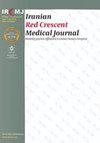Study of the Organizational Structure of Military Hospitals in Selected Countries of the World Based on the World Bank Model - a Qualitative Study
IF 0.2
4区 医学
Q3 MEDICINE, GENERAL & INTERNAL
引用次数: 0
Abstract
Background: The health has turned into one of the most important issues in different societies; hence, the demand for health-medical services has increased. Objectives: The present study aimed to investigate and use the experiences of the military health system of other countries regarding the organizational structures of their hospitals based on the World Bank Model. Methods: This study based on the model of Perker and Harding investigated and compared the organizational structure of military hospitals in nine countries, namely Germany, Brazil, Turkey, South Korea, South Africa, China, Pakistan, Italy, and Iran through semi-structured interviews. Results: The findings showed that in 18 interviews, 61% of the participants were specialist and subspecialist doctors, and the work experience of 39% of the participants was between 25 and 30 years. The World Bank Model (Preker and Harding), for hospital structure, considers five dimensions, including decision rights, market exposure, residual claims, accountability, and social functions. In the dimension of the decision-making right, the findings indicated the focus of this dimension in the studied countries. Facing the goods and supplies market in a country like South Korea is left to the hospital; however, in South Africa, it is centrally conducted by the Health and Medical Commander. In countries, like South Korea, Pakistan, China, and Iran, the residual claimant is propelled through the creation of committees or supervisory boards, while hospitals have some authority over their residual claimant. In the other studied countries, the authority of all residual claimants is with the highest level of military health and treatment sector of the relevant country. In countries, such as Germany, Italy, and South Korea, accountability towards stakeholders has become decentralized. The dimension of social functions is not considered among the duties of military hospitals; nevertheless, all the studied countries practically had a relatively active presence in the field of social functions and assistance. Conclusion: Given the importance of the health of the military community and the lack of available and published data and studies, it is necessary to make use of the experiences and learnings of this field by conducting studies on the military health system.基于世界银行模型的世界各国军队医院组织结构研究——一项定性研究
背景:健康已成为不同社会中最重要的问题之一;因此,对健康医疗服务的需求增加了。目的:本研究旨在调查和利用其他国家军事卫生系统在基于世界银行模式的医院组织结构方面的经验。方法:本研究基于Perker和Harding模型,采用半结构化访谈的方法,对德国、巴西、土耳其、韩国、南非、中国、巴基斯坦、意大利和伊朗9个国家军队医院的组织结构进行了调查和比较。结果:在18次访谈中,61%的参与者是专科和亚专科医生,39%的参与者的工作经验在25至30年之间。世界银行的医院结构模型(Preker和Harding)考虑了五个维度,包括决策权、市场敞口、剩余索赔、责任和社会职能。在决策权方面,研究结果表明了被研究国家对这一层面的关注。面对商品和用品市场,像韩国这样的国家被留在了医院;然而,在南非,它是由卫生和医疗指挥官集中管理的。在韩国、巴基斯坦、中国和伊朗等国,剩余索赔人是通过成立委员会或监事会来推动的,而医院对剩余索赔人有一定的权力。在其他被研究国家,所有剩余索赔人的权力属于相关国家最高级别的军事卫生和治疗部门。在德国、意大利和韩国等国家,对利益相关者的问责已经分散。军队医院的职责不包括社会职能;然而,所有被研究的国家实际上在社会职能和援助领域都有相对活跃的存在。结论:鉴于军事界健康的重要性,以及缺乏可用和已发表的数据和研究,有必要通过对军事卫生系统进行研究来利用这一领域的经验和教训。
本文章由计算机程序翻译,如有差异,请以英文原文为准。
求助全文
约1分钟内获得全文
求助全文
来源期刊

Iranian Red Crescent Medical Journal
MEDICINE, GENERAL & INTERNAL-
CiteScore
1.16
自引率
0.00%
发文量
0
期刊介绍:
The IRANIAN RED CRESCENT MEDICAL JOURNAL is an international, English language, peer-reviewed journal dealing with general Medicine and Surgery, Disaster Medicine and Health Policy. It is an official Journal of the Iranian Hospital Dubai and is published monthly. The Iranian Red Crescent Medical Journal aims at publishing the high quality materials, both clinical and scientific, on all aspects of Medicine and Surgery
 求助内容:
求助内容: 应助结果提醒方式:
应助结果提醒方式:


